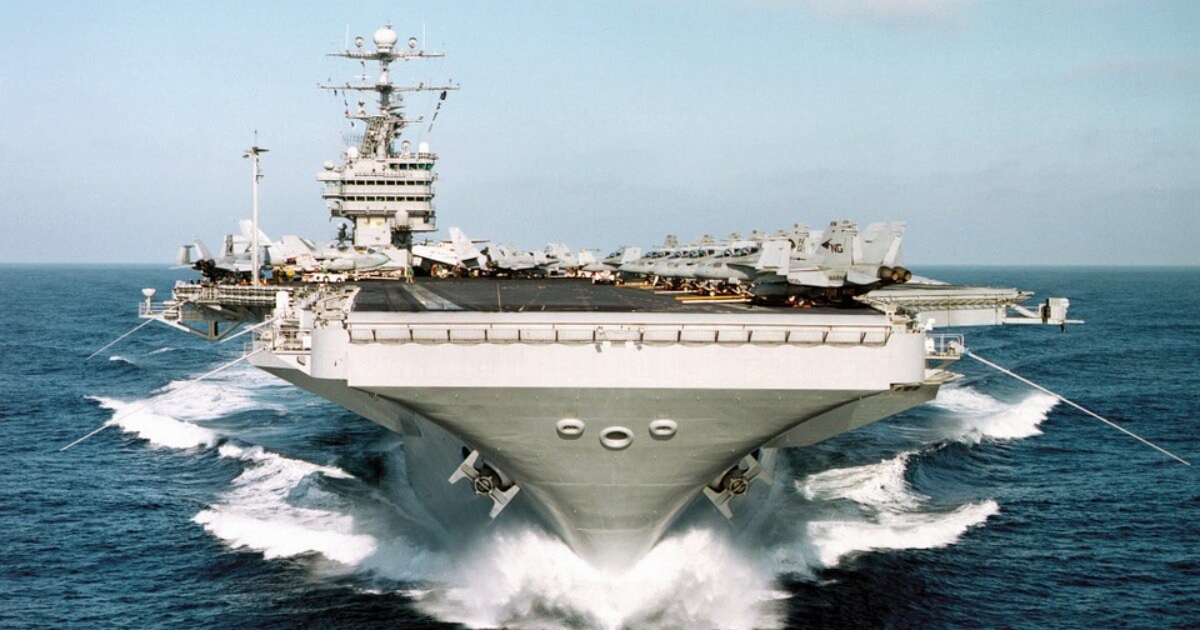The West and War: Culture Driving Conflict
When the world’s dominant culture exalts war, it is no wonder there is so much of it.
September 9, 2016

War is hell, as the saying goes. And yet, we cannot seem to get enough of it. It permeates the movies we watch, the games we play, the books we read and even some of the music we listen to. It is an integral part of our culture.
Our morbid fascination with war is being conditioned from youth onward. Toy guns, model tanks and board games emulate war. Today’s most successful video-game franchises revolve around it. Through these games, we immerse ourselves in war and get used to it.
These games not only recreate the most horrific conditions human beings have ever had to endure. They also become the leisure-time backdrop for an entire generation of children and adolescents.
Overeager United States
Western culture, particularly that of the United States, is undeniably warlike, and culture influences our perceptions and forms our values. For the United States, war is something that happens somewhere else, even when it is actively involved – which quite often is the case.
Even when it is not actively involved, odds are the weapons it exports around the world are. Despite this clear-cut connection, U.S. politicians and citizens express indignation when the buyers use them for their intended purpose – to kill.
But it isn’t just the culpability of the United States, although it must share a significant part of the blame. As the West’s lead culture, it certainly sets the tone.
Role of the media
More broadly, Western media’s portrayal of war also ensures that there often is a complete disconnect with its actual, horrendous reality.
Rather than show the gruesome truth – which could shock us into an emotional response or even action to try to stop it – the media censor it. With rare exceptions, the media tend to present war in non-offending parcels that we can consume without making us too uncomfortable.
Those who have actually experienced war in its full depth (and survive) are usually emotionally broken for the rest of their lives. They generally do not have the strength or the voice to reach society (which generally does not want to listen anyway).
We would much rather “experience” war in the clinical fashion in which Michael Bay, the director of the Benghazi film “13 Hours,” presents it. In his work, explosions – presumably the most terrifying thing a person can experience – all of a sudden become “cool.”
The military’s self-dealing
The military prefers it that way as well. Part of its problem is that the interaction between the military and society at large – apart from its increasing involvement with Hollywood — is usually limited to the former extolling its latest piece of weaponry.
The military likes to show off how awesome and advanced its weaponry is – naturally much better than what the “bad guys” have.
The billions of taxpayer money that it costs – and the schools and hospitals the money could have been used to build – usually go unmentioned (or remain unquestioned).
Part of the reasoning that goes into this quite deliberate positioning, especially in the United States, is the funding needs of the military contractors’ R&D departments. More money only tends to be forthcoming when there is a perceived external threat.
Why we need enemies
That explains the constant need of an “enemy,” a mechanism that once again plays out particularly in the United States. Otherwise, the whole venture could not be kept going.
U.S. politicians realize this. And yet, they indirectly reinforce this mechanism. Most of them reflexively want to present themselves as the candidate strongest on defense. If they did otherwise, they would be accused of being unpatriotic – which would be catastrophic in any U.S. election campaign.
The problem with asymmetric challenges
The challenge for the defense industry is considerable. From a broader Western perspective, there isn’t much of an adversary who could realistically hope to challenge us on our home turf, at least conventionally.
Those sinister forces that occasionally manage to inflict a pin prick on the West usually come from regions where the West, often goaded on by the United States, has had a hand in bringing about the conditions that led to their creation. Quite often, it even armed them. See the bin Laden forces – or ISIS now.
The problem will stay with us
Of course, violence and conflict are part of the human condition. They have been prominent in many cultures during many ages. In our contemporary world, many wars also happen that the West is not involved in, directly or indirectly.
True as well that, when it is involved, the West can definitely do so to serve valid reasons and rational geopolitical necessities. However, the special place that war still has in Western — and particularly in American culture — undoubtedly leads to more of it than is strictly “necessary.”
As long as Western culture, entertainment, media, economics and politics in too many quarters continue to exalt war, the question must be asked: How can there ever be peace?
Unless we cease being so devoted to it, Plato’s maxim “only the dead have seen the end of war” seems depressingly spot on.
Takeaways
War is hell, as the saying goes. Yet, we cannot seem to get enough of it. It permeates our culture.
The United States, as the West’s lead culture, sets the tone in Western media’s portrayal of war.
Those who have actually experienced war usually do not have the strength or the voice to reach society.
Does the special place that war has in American culture lead to more of it than is "necessary"?
The funding needs of military contractors explain the constant need of an “enemy,” – especially in the US.
Plato’s maxim “only the dead have seen the end of war” seems depressingly spot on.
